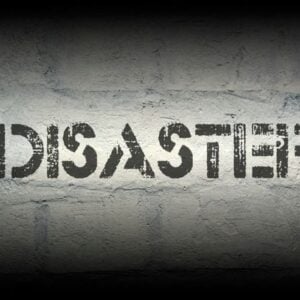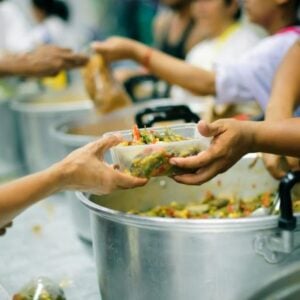Ukraine’s recovery goes beyond rebuilding structures and restoring infrastructure—it is about creating communities where everyone can move, participate, and live independently. Recognizing this, the Barrier-Free Routes School was launched in 2025 as a collaborative initiative by UNDP in Ukraine, the Ministry for Communities and Territories Development, and with support from the Government of Japan. The program equips communities with the knowledge, tools, and guidance needed to design inclusive, accessible environments that prioritize people’s needs and ensure that recovery benefits everyone.
Barrier-free routes are continuous, safe, and convenient pathways connecting key locations such as schools, clinics, transport hubs, and community centers. These routes are critical for people with disabilities, temporary injuries, older adults, and parents with young children, determining whether they can access essential services and participate fully in society. The ongoing war in Ukraine has intensified these challenges, increasing the number of people with injuries while damaging infrastructure and exposing limitations in urban planning. Applying barrier-free and universal design principles ensures that reconstruction is not only restorative but also builds dignity, equality, and independence into communities.
The Barrier-Free Routes School contributes to the national “Movement Without Barriers” program, coordinated by the Ministry for Communities and Territories Development and part of First Lady Olena Zelenska’s broader “Without Barriers” initiative. The program empowers local authorities to embed accessibility as a core principle in urban planning and recovery efforts, providing training, technical assistance, and resources to ensure inclusive design is systematically applied rather than addressed sporadically. By promoting community-led approaches and sustainable planning, the initiative prevents past development mistakes from being repeated and ensures equitable access for all residents.
In its initial phase, the program selected 15 Ukrainian cities of various sizes, including Kyiv, Dnipro, Lviv, Odesa, Ternopil, Rivne, Zhytomyr, Kropyvnytskyi, Chernivtsi, Poltava, Vinnytsia, Bucha, Borodianka, Slavutych, and Opishnia. Analysis of early implementation highlighted the need for additional training, leading to the enrollment of 61 municipal officials in the first four-day intensive session of the Barrier-Free Routes School. Participants learned about inclusive design methods, international best practices, and relevant Ukrainian legislation, followed by mentoring from accessibility specialists. They are currently developing their barrier-free route projects, with final presentations scheduled for November 2025.
The initiative emphasizes the shared values of accessibility: creating environments where people of all ages, abilities, and circumstances can live independently, safely, and participate fully in social life. Inclusive design strengthens recovery, fostering cohesive, resilient communities that are better prepared for future challenges. The school also illustrates the impact of international partnerships. With funding from the Government of Japan, UNDP and the Ministry have been able to implement a locally tailored program that addresses real needs and empowers municipalities to integrate accessibility into urban planning.
Looking ahead, the November presentations will showcase projects that serve as models for other communities, demonstrating the benefits of barrier-free approaches. Beyond individual projects, the school aims to shift mindsets—reframing accessibility from a niche concern to a fundamental principle that improves life for all. By embedding inclusive principles into governance and planning, Ukraine is laying the foundation for a recovery that is not only rapid but also equitable, resilient, and sustainable. Local teams are transforming challenges into opportunities, proving that a barrier-free Ukraine is possible through collaboration, determination, and forward-looking design.







